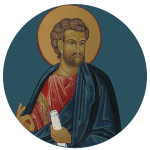Eastern Orthodox
The Orthodox Church began in Jerusalem on the day of Pentecost (Acts 2), and from there spread throughout the world. Today some 200 million people identify themselves as Orthodox, most of whom live in Greece, Russia, Romania, Serbia and other eastern European countries, as well as throughout the Middle East. Approximately four million Orthodox live in the United States.
This ‘Eastern’ Orthodox faith has established itself throughout the world: in North America, Africa, Australia, and Western Europe. Small groups also exist in Asia and South America. Orthodox missionaries from Russia were present in Alaska by the late 1700s, and in Japan and China by the mid-1800s. But the spread of Orthodox peoples throughout the world increased dramatically during the 20th century, particularly in the wake of anti-Christian Communist oppression throughout Eastern Europe.

Unlike the Catholic Church since Vatican II, the Orthodox Church has had no Church-wide liturgical reform. It maintains a richly beautiful liturgical tradition with many customs dating back to Apostolic times, including fasting on Wednesdays and Fridays, receiving Communion on an empty stomach, ancient liturgical prayers and chants, frequent sacramental confession, standing or kneeling during services instead of sitting, and baptism by full immersion.
In the Orthodox Church there is no universal liturgical language (such as Latin in the Catholic Church); it has always been our tradition to pray in the local language. Orthodoxy also upholds the ancient practice of married clergymen, while also valuing and encouraging celibacy for those who are called to it (cf. Matthew 19 : 10–12).
Orthodoxy and Protestantism
Protestant denominations (such as Baptist, Anglican or Episcopalian, Lutheran, Presbyterian, etc.) have their origins in 16th-century Western Europe. These groups were a departure from the Catholic Church which, five hundred years previous, had departed from the Orthodox Church. Some of the Protestant reformers were earnestly trying to return to the Church of the New Testament – the early Church of the Apostles, which they believed had been distorted by the Catholic Church. Ironically, with a bit of education they would have found what they were seeking in the Orthodox Church.
In recent years, many groups within Protestantism have abandoned fundamental Christian doctrines and moral teachings, despite the clear witness of Holy Scripture, so highly valued by the 16th-century reformers. But the theological and moral vision of Orthodoxy – what Saint Paul calls ‘the mind of Christ’ – remains unchanged (1 Corinthians 2 : 16; cf. Hebrews 13 : 8).
The service of the Divine Liturgy is the very heart of Orthodox life and faith. In it we receive Holy Communion which unites us with other Orthodox believers throughout the world. We are also united to the whole ‘communion of saints’ – all the departed martyrs, holy fathers and mothers of past ages – who join us and the hosts of angels in giving unceasing glory to God (cf. Isaiah 6 : 3; Revelation 7 : 9–17). But most importantly, Holy Communion unites each of us to Jesus Christ, for he offers himself to us in his very Body and Blood (cf. John 6 : 53–57). Orthodox parishes celebrate the Divine Liturgy every Sunday morning as well as on many feast days throughout the year.
Orthodox Christian Living
The Orthodox Church maintains basic Christian moral positions on the sanctity of life and marriage. Marriage is between one man and one woman for life, and this is the only appropriate context for physical relations that can lead to childbirth. Abortion, euthanasia, divorce, and homosexual activity are a few examples of actions which seriously distort God’s loving purpose for our lives. However, there is no sin that God will not forgive and whose damaging spiritual affects God cannot heal.
The Christian life consists in opening our hearts, minds, and bodies to this merciful grace of God’s healing, and this is a life-long endeavor requiring faith and perseverance. (cf. Philippians 2 : 12–13)
Through constant prayer, through participation in the Church’s sacraments and the study of Holy Scripture, through serious struggle against our strong inclinations to sin and selfishness, and through gestures of loving self-sacrifice for others, we strive to enter more deeply into communion with the God who is Love (1 John 4 : 16). Union with God constitutes man’s only true and lasting happiness. It is this union and this happiness which Christ Jesus longs to give us, and the Church exists to make that happen.

